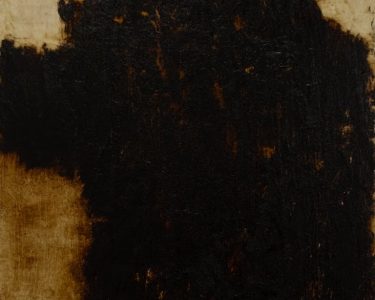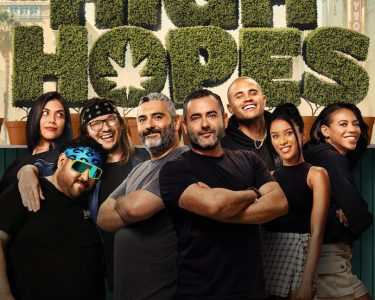PROUD A 3-PART LGBT GAY RIGHTS MINI-SERIES AVAILABLE NOW

Reviewed by Thyronne Millaud: Proud is a three-part French miniseries that follows it’s three main characters Charles, Victor, and Diego through three decades of LGBTQ struggles, political change, and family drama, directed by Cesar Award-winning director Philippe Faucon and starring Stanislas Nordey, Samuel This, Frederic Pierrot, and Chiara Mastroianni.
The story begins in the early 1980s with 17-year-old Vincent is working after school with his father at a construction site. Through radio and TV news we learn there is a national election about to take place. Vincent’s father, Charles, is a socialist, very progressive, and open-minded towards workers of various races and religions that he works with. He and his wife are ardent supporters of Leftist Francois Mitterand and not only seem to be working with the campaign but genuinely excited by the promise of social change and spirit of acceptance to come should Mitterand win the presidency.
One day Charles sees Victor and another worker’s son, Selim having sex while everyone else is at lunch. Not ok with this but not knowing what to do he keeps it to himself until Selim makes a mistake on the job and he fires him on the spot. Later when Selim’s father comes to his home to find out why his son got fired and pleads for his job back, Charles tells him what he saw and blames Selim for corrupting Vincent. This creates a rift with Charles and his coworkers as well as between Selim and Vincent. Vincent tries to keep things normal with his family and girlfriend, but as he’s teased more and more in school and conflicted with his family and his girlfriend As for Selim he cruises a notorious gay pick up spot and meets an older man, Serge, who he begins a casual relationship with.
Charles confronts Serge and threatens to go to the police if Serge doesn’t end the relationship. Not only is Vincent still a minor, but it is still against the law to be homosexual in France. Serge tells Charles he will back away but when the new progressive government comes to power and Vincent turns 18 he will not be able to control his son.
Mitterrand wins, homosexuality is legalized and while celebrating Vincent’s 18th birthday, the family is interrupted by Serge who declares Vincent can now willingly go with him, and no one can stop him, which he does.
The second episode picks up in 1999 when France has progressed to the point where same-sex civil unions are allowed but Vincent is still struggling with his sexuality and the need to start a family. Once the adoption process begins they face numerous obstacles and even with the support of their community they feel isolated and beaten.
The last installment jumps to 2013 when Vincent’s adopted son, Diego, is coming of age and must deal with the fact that his parents are both men. Politically, gay marriage is now allowed in France and Charles seems not only accepting but supportive.
Proud is a very French production, gritty and humorless, very serious with quite a bit of heady dialog exposing not only the character’s feelings but also their politics and philosophies. I couldn’t help but think that a Hollywood production would be chocked full of over dramatic histrionics and probably some character added willy-nilly just for comic relief.
An American version of this would be paced quicker, bigger, and more spectacular, in other words, less personal. In the end, what works with Proud is just how personal and real it feels. The acting and filmmaking is solid and delivers a watchable experience grounded in reality, albeit a little bland and a little too safe. But it is interesting to ride the roller coaster of the French LGBTQ rights movement from illegality and shame to open sanctioned civil unions and pride with one character as he goes from boyhood to fatherhood and has to deal and react to the world.
PROUD CAN BE SEEN AT KINOMARQUE

Kino Marquee is a new initiative that creates “virtual cinemas” for temporarily closed independent theaters. Local audiences support their community’s theater in these uncertain times by buying a virtual “ticket” to watch the film. Their ticket purchases directly support their local art house as all revenue is being shared between distributor and exhibitor, just as if they bought their ticket at the theater’s box office. Kino Marquee currently works with over 350 art house theaters across the nation.



















